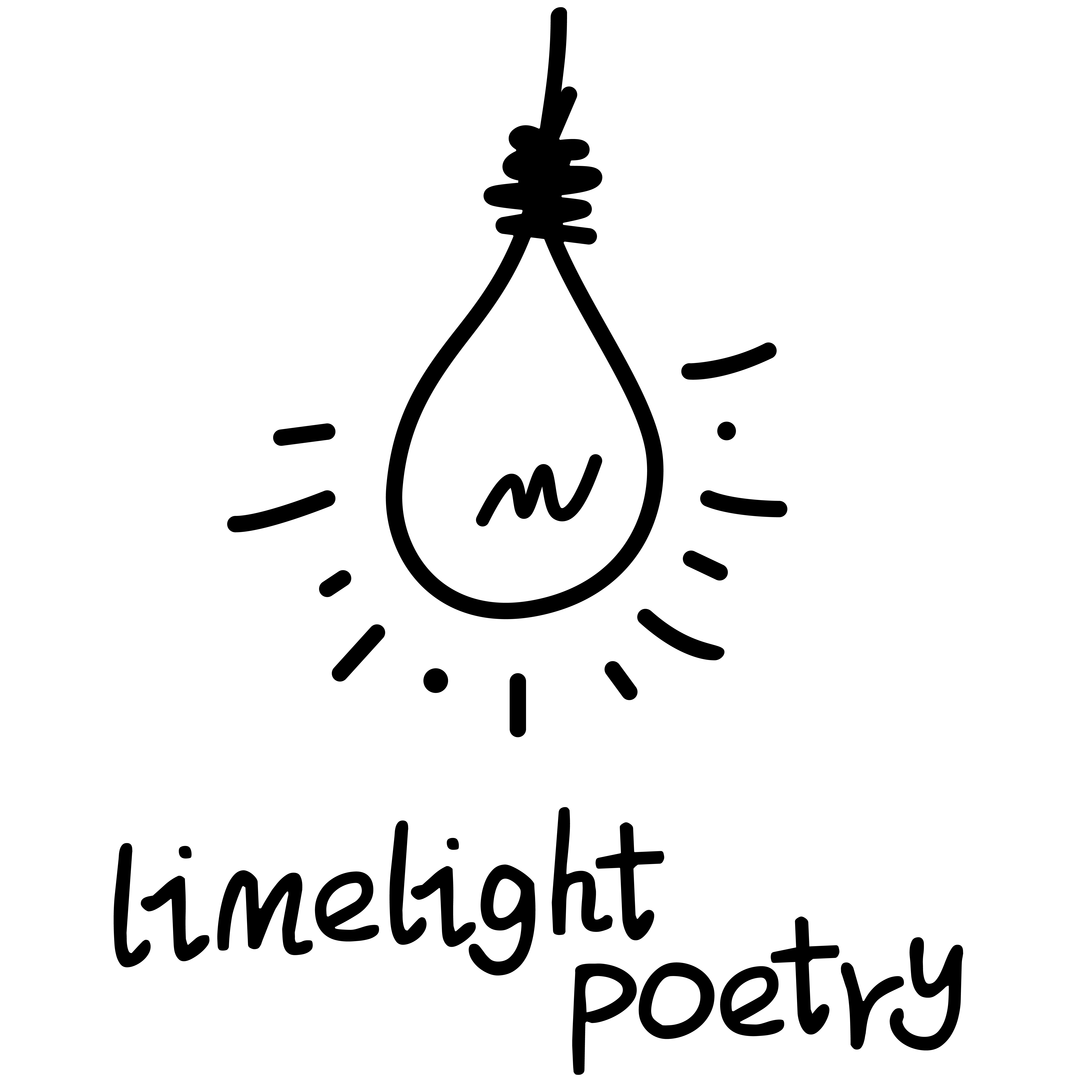
POEMS
by Nikola Madzirov
AFTER US
One day someone will fold our blankets
and send them to the cleaners
to scrub the last grain of salt from them,
will open our letters and sort them out by date
instead of by how often they’ve been read.
One day someone will rearrange the room’s furniture
like chessmen at the start of a new game,
will open the old shoebox
where we hoard pyjama-buttons,
not-quite-dead batteries and hunger.
One day the ache will return to our backs
from the weight of hotel room keys
and the receptionist’s suspicion
as he hands over the TV remote control.
Others’ pity will set out after us
like the moon after some wandering child.
HOME
I lived at the edge of the town
like a streetlamp whose light bulb
no one ever replaces.
Cobwebs held the walls together,
and sweat our clasped hands.
I hid my teddy bear
in holes in crudely built stone walls
saving him from dreams.
Day and night I made the threshold come alive
returning like a bee that
always returns to the previous flower.
It was a time of peace when I left home:
the bitten apple was not bruised,
on the letter a stamp with an old abandoned house.
From birth I’ve migrated to quiet places
and voids have clung beneath me
like snow that doesn’t know if it belongs
to the earth or to the air.
WHEN SOMEONE GOES AWAY EVERYTHING THAT’S BEEN DONE COMES BACK
For Marjan K.
In the embrace on the corner you will recognize
someone’s going away somewhere. It’s always so.
I live between two truths
like a neon light trembling in
an empty hall. My heart collects
more and more people, since they’re not here anymore.
It’s always so. One fourth of our waking hours
is spent in blinking. We forget
things even before we lose them –
the calligraphy notebook, for instance.
Nothing’s ever new. The bus
seat is always warm.
Last words are carried over
like oblique buckets to an ordinary summer fire.
The same will happen all over again tomorrow—
the face, before it vanishes from the photo,
will lose the wrinkles. When someone goes away
everything that’s been done comes back.
I DON'T KNOW
Distant are all the houses I am dreaming of,
distant is the voice of my mother
calling me for dinner, but I run toward the fields of wheat.
We are distant like a ball that misses the goal
and goes toward the sky, we are alive
like a thermometer that is precise only when
we look at it.
The distant reality every day questions me
like an unknown traveler who wakes me up in the middle of the journey
saying Is this the right bus?,
and I answer Yes, but I mean I don't know,
I don't know the cities of your grandparents
who want to leave behind all discovered diseases
and cures made of patience.
I dream of a house on the hill of our longings,
to watch how the waves of the sea draw
the cardiogram of our falls and loves,
how people believe so as not to sink
and step so as not to be forgotten.
Distant are all the huts where we hid from the storm
and from the pain of the does dying in front of the eyes of the hunters
who were more lonely than hungry.
The distant moment every day asks me
Is this the window? Is this the life? and I say
Yes, but I mean I don't know, I don't know if
birds will begin to speak, without uttering A war.
I DON'T KNOW
SEPARATED
by Nikola Madzirov
SEPARATED
I separated myself from each truth about the beginnings
of rivers, trees, and cities.
I have a name that will be a street of goodbyes
and a heart that appears on X-ray films.
I separated myself even from you, mother of all skies
and carefree houses.
Now my blood is a refugee that belongs
to several souls and open wounds.
My god lives in the phosphorous of a match,
in the ashes holding the shape of the firewood.
I don't need a map of the world when I fall asleep.
Now the shadow of a stalk of wheat covers my hope,
and my word is as valuable
as an old family watch that doesn't keep time.
I separated from myself, to arrive at your skin
smelling of honey and wind, at your name
signifying restlessness that calms me down,
opening the doors to the cities in which I sleep,
but don't live.
I separated myself from the air, the water, the fire.
The earth I was made from
is built into my home.
I DON'T KNOW
SEPARATED
by Nikola Madzirov
USUAL SUMMER NIGHTFALL
1.
This is what summer nightfall is like:
the adulteress comes onto the balcony
in a silk nightgown that lets through
the trembling of the stars,
a twig drops from the beak of a bird
that falls asleep before it has built its home,
a soldier lowers the flag of the state
with a letter from his mother in his pocket
and atomic tests in the womb of the earth
secretly revive the dead. At that moment someone
quietly interprets Byzantine neumes,
someone else falsifies the exoduses
of the Balkan and the civil wars
in the name of universal truths.
In the factory yards
the statues of participants
in annulled revolutions sleep,
on the symmetrical graves
plastic flowers lose their colour
and ordinary ones their shape,
but this peace of the dead
we have parted from
is not ours.
2.
In the village with three lit windows
a fortune-teller foresees only
recoveries, and not illnesses.
The waves throw up bottles enough
to hold the whole sea,
the arrow on the one-way road sign
points to God,
a fisherman rips off a bit of the sky
as he casts his baited line into the river,
some poor child searches for the Little Bear
and the planet he’d like to come from,
in front of the doorstep of the killer with an alibi
a feather attempts to fly.
This is what usual summer nightfall is like.
The town combusts in the redness of the moon
and the fire brigade ladders seem
to lead to heaven, even then when
everyone
is climbing
down
them.
I DON'T KNOW
SEPARATED
by Nikola Madzirov
WHAT WE HAVE SAID HAUNTS US
We’ve given names
to the wild plants
behind unfinished buildings,
given names to all the monuments
of our invaders.
We’ve christened our children
with affectionate nicknames
taken from letters
read only once.
Afterwards in secret we’ve interpreted
signatures at the foot of prescriptions
for incurable diseases,
with binoculars we’ve zoomed in
on hands waving farewell
at windows.
We’ve left words
under stones with buried shadows,
on the hill that guards the echo
of the ancestors whose names are not
in the family tree.
What we have said without witnesses
will long haunt us.
The winters have piled up in us
without ever being mentioned.
I DON'T KNOW
SEPARATED
by Nikola Madzirov
SHADOWS PASS US BY
We’ll meet one day,
like a paper boat and
a watermelon that’s been cooling in the river.
The anxiety of the world will
be with us. Our palms
will eclipse the sun and we’ll
approach each other holding lanterns.
One day, the wind won’t
change direction.
The birch will send away leaves
into our shoes on the doorstep.
The wolves will come after
our innocence.
The butterflies will leave
their dust on our cheeks.
An old woman will tell stories
about us in the waiting room every morning.
Even what I’m saying has
been said already: we’re waiting for the wind
like two flags on a border.
One day every shadow
will pass us by.
THE ONE WHO WRITES
You write. About the things that already exist.
And they say you fantasize.
You keep quiet. Like the sunken nets
of poachers. Like an angel
who knows what the night may bring.
And you travel. You forget,
so that you can come back.
You write and you don't want to remember
the stone, the sea, the believers
sleeping with their hands apart.
THE EYE
To Vasko Popa
Open one eye only —
the horizon is in the closed eye.
Open the seashell —
no solitude will escape.
The stones on the riverbed drink up time,
the dead fish swim towards the sun.
Open one eye only.
The world is a young tree on a building site,
windows are rivers of our uncertainty.
Open the sky.
In my hands I keep a home —
a prayer room in a hospital garden.
I SAW DREAMS
I saw dreams that no one remembers
and people wailing at the wrong graves.
I saw embraces in a falling airplane
and streets with open arteries.
I saw volcanoes asleep longer than
the roots of the family tree
and a child who's not afraid of the rain.
Only it was me no one saw,
only it was me no one saw.
FAST IS THE CENTURY
Fast is the century. If I were wind
I would have peeled the bark off the trees
and the facades off the buildings in the outskirts.
If I were gold, I would have been hidden in cellars,
into crumbly earth and among broken toys,
I would have been forgotten by the fathers,
and their sons would remember me forever.
If I were a dog, I wouldn't have been afraid of
refugees, if I were a moon
I wouldn't have been scared of executions.
If I wеre a wall clock
I would have covered the cracks on the wall.
Fast is the century. We survive the weak earthquakes
watching towards the sky, yet not towards the ground.
We open the windows to let in the air
of the places we have never been.
Wars don't exist,
since someone wounds our heart every day.
Fast is the century.
Faster than the word.
If I were dead, everyone would have believed me
when I kept silent.
All poems translated by Peggy and Graham W. Reid,
except the poems “Shadows Pass Us By” (translated by Magdalena Horvat and Adam Reed)
and “The Eye” (translated by Sasha Dugdale and the author)


